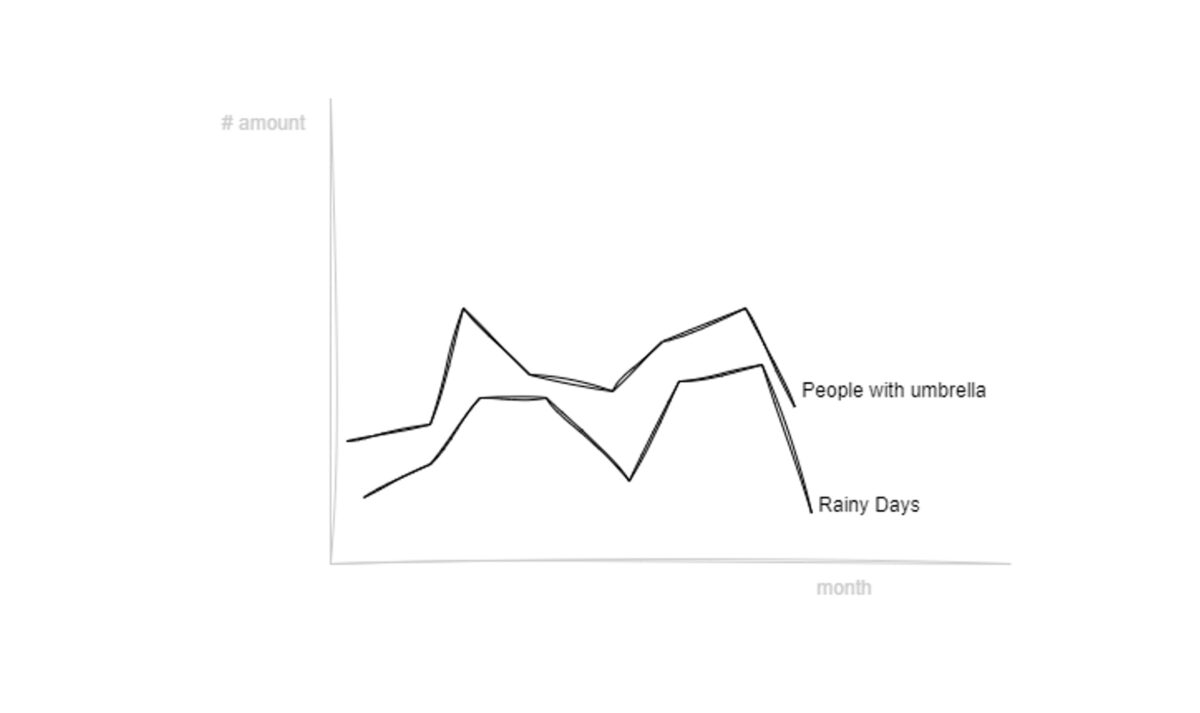Mini-Series: Let’s learn from Communication Theory
Uncover the hidden power of communication theories on information dashboard design and data analytics in this Mini-Series.
Data analytics is like a treasure trove of information, ready to be unlocked and used. But a lurking danger called Sophism can turn our data-driven dreams into a nightmare. Let’s explore Sophism in data analytics and how to avoid its traps.
Understand Sophism in Data Analytics
Sophism in data analytics occurs when we focus solely on correlation, assuming that if two things seem related, one must cause the other. It’s like saying, “Every time I carry an umbrella, it rains. Therefore, carrying an umbrella causes rain.” This kind of thinking can lead to false conclusions and misguided decisions.
Discover Sophism in Data Analytics
Three main causes can lead to unintentional Sophism in data analytics. The exact three causes are utilised by dishonest people to fool people, showing them data as evidence no matter their motivation to mislead others.
Causation vs. Correlation
Always differentiate between causation (one thing directly causing another) and correlation (two things happening together but not necessarily causing each other). Look for evidence beyond mere association. A classic example is the correlation between sales and profit. No saleswoman or salesman would ever suggest increasing the profit to maximise sales. However, when I first tried out a machine-learning feature of a BI tool, it told me it found a strong correlation between these two measures. Well, congrats!
Lack of Context
Don’t rely solely on the data. Sophism often arises when we ignore the broader context. Ensure you consider all relevant factors that might be influencing the data. If you see a significant drop in a region but don’t know the context, how can you tell if it is an issue or something expected? There is an excellent book by David Hand about the lack of context in data analytics: “Dark Data. Why What You Don’t Know Matters.”
Cherry-Picking Data
Sophists often cherry-pick data that supports their desired outcome. This year (2023), there is a scandal in behavioural science, which puts the entire field into a crisis. And it is caused by precisely this: a Harvard professor accused of cherry-picking the data to support the thesis of a study conducted in 2012 about honesty (sic!).
Avoid the Sophism Trap
There are many concepts to work against Sophism in data analytics, intentional or unintentional, yours or someone else’s.
Use Critical Thinking
Don’t jump to conclusions. Ask questions, challenge assumptions, and seek alternative explanations for the data you observe.
Experiment and Test
Conduct controlled experiments when possible to establish causation. Randomised controlled trials are powerful tools for this purpose.
Consult Domain Experts
Involve subject matter experts who can provide insights and help you avoid misinterpreting data. This is important if you are relatively new to a field or work as an external consultant.
Document Your Process
Keep clear records of your data analysis process, including assumptions, methodologies, and limitations. This transparency helps others assess your findings.
Seek Peer Review
Share your analysis with colleagues or mentors for feedback. Fresh perspectives can help uncover potential sophisms. Don’t rely solely on your critical thinking.
Use supervised learning
Don’t rely too much on AI or statistical models. Use human intelligence as well. Are there studies conducted or economic theories which underline your insights? Are your findings expected? Working with assumed outcomes can help to spot Sophism in your daily business as an analyst.
Concluding the Main Learnings
Sophism is a lurking threat in data analytics that can lead us down the wrong path if we’re not careful. By staying vigilant, critically analysing data, and seeking various perspectives, we can avoid falling unintentionally into the sophism trap and harness the true power of data for informed decision-making. Remember, a correlation may not imply causation, but careful analysis accompanied by good old conversations can uncover the real insights hiding within our data.


